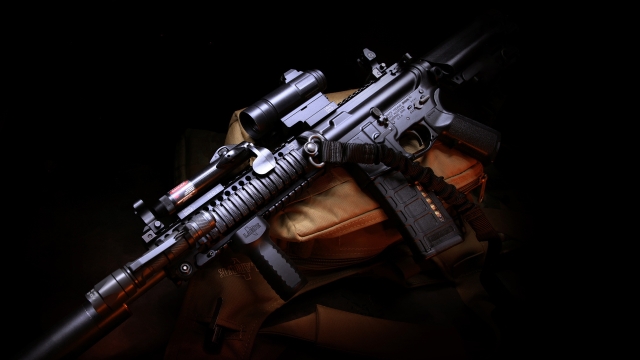In the world of firearms, history intertwines with technology to create a captivating tale that has captivated enthusiasts for centuries. From the invention of gunpowder to the groundbreaking advancements in modern weaponry, firearms have played a significant role in shaping our societies. Whether it’s for personal protection, sport shooting, or historical appreciation, firearms continue to intrigue and fascinate individuals around the globe.
One of the most intriguing aspects of firearms is the ability to buy and sell them, allowing you to become a part of this rich history. However, navigating the world of firearms transactions can be a daunting task without the proper knowledge and understanding. That’s why we’ve put together this comprehensive guide to help unravel the mysteries of buying and selling firearms. Whether you’re a seasoned collector, a beginner looking to start your own collection, or simply someone curious about the process, this guide will provide you with valuable insights and practical tips to make informed decisions. So, let’s dive into the captivating realm of firearms and unlock the secrets that lie within.
Understanding the Different Types of Firearms
Firearms come in a variety of types, each designed to serve specific purposes. Understanding these different types is crucial for anyone looking to buy or sell firearms. Let’s explore three categories of firearms: handguns, rifles, and shotguns.
Handguns are small and portable firearms that can be held and operated with a single hand. They are commonly known as pistols or revolvers. Pistols are semi-automatic firearms that use magazines to hold rounds of ammunition, while revolvers have a rotating cylinder that holds the cartridges. Handguns are mainly used for self-defense and personal protection due to their compact size and ease of concealment.
On the other hand, rifles are long-barreled firearms designed for accuracy and precision at medium to long distances. They are often shoulder-fired and have a stock to provide stability for the user. Rifles are capable of firing a single shot or utilizing a semi-automatic or fully automatic firing mode. They are commonly used for hunting, sport shooting, and military purposes.
Shotguns, with their unique design, are highly versatile firearms. They are characterized by their smoothbore barrels and the ability to fire a cluster of small projectiles, called shot, or a single large projectile, known as a slug. Shotguns are commonly used for hunting various types of game, sport shooting such as skeet or trap, and in some cases, for home defense.
Understanding the differences between these types of firearms is crucial when venturing into the world of buying or selling firearms. Each type has its own unique characteristics, advantages, and purposes. By familiarizing oneself with these distinctions, individuals can make informed decisions and navigate the firearms market with confidence.
Remember, firearms ownership and sales are subject to local and national laws and regulations. It is important to consult and adhere to the relevant legal requirements when engaging in any firearms-related activities.
Navigating the Legalities of Buying and Selling Firearms
When it comes to buying and selling firearms, there are important legal considerations that must be taken into account. It is crucial to understand the laws and regulations surrounding firearms transactions in order to ensure a smooth and lawful process.
One of the first steps in navigating the legalities of buying and selling firearms is familiarizing yourself with the applicable federal, state, and local laws. The laws regarding firearms can vary greatly depending on where you are located, so it is essential to research and understand the specific regulations in your area. This includes knowing the legal age requirements, background check procedures, and any licensing or permits that may be necessary.
In addition to the laws, it is crucial to be aware of any restrictions or prohibitions on certain types of firearms. Some weapons, such as fully automatic firearms or certain short-barreled rifles, may be subject to additional regulations or even outright bans. Understanding these restrictions can help you avoid legal trouble and ensure that you are not unknowingly in violation of the law.

Finally, when engaging in the buying or selling process, it is vital to follow proper documentation and record-keeping procedures. This may include filling out federal firearms transfer forms, keeping a record of sales or purchases, and verifying the identity and eligibility of the individuals involved. These steps are not only important for legal compliance but also for ensuring responsible and safe firearm transactions.
By understanding and adhering to the legalities of buying and selling firearms, you can navigate the process with confidence and peace of mind. Proper knowledge of the laws, restrictions, and documentation requirements will not only safeguard you from legal repercussions but also contribute to the responsible and lawful use of firearms.
Tips for Safe and Responsible Gun Transactions
Conduct thorough background checks: When buying or selling firearms, it is crucial to ensure the eligibility and legal status of the individuals involved. Before completing any transaction, both buyers and sellers should diligently conduct background checks to verify that the other party is legally allowed to possess firearms. This helps to prevent firearms from falling into the wrong hands and promotes responsible gun ownership.
Follow all applicable laws and regulations: Every jurisdiction has its own specific laws and regulations regarding the buying and selling of firearms. It is essential to familiarize yourself with these laws and comply with them strictly. Make sure to complete all required paperwork, obtain necessary licenses or permits, and adhere to any waiting periods or other legal requirements. By following the law, you contribute to the overall safety of the community and avoid potential legal consequences.
Seek professional assistance if needed: If you are unsure about any aspect of a gun transaction or feel overwhelmed by the process, seeking professional assistance is advisable. Firearms dealers, licensed experts, or legal professionals can provide guidance and ensure that your transaction is carried out safely and responsibly. Don’t hesitate to reach out to them for help with document preparation, understanding legal requirements, or navigating the complexities of gun sales.
Where Can I Sell My Gun
Remember, promoting safety and responsibility in gun transactions is a shared responsibility. By following these tips, you contribute to the well-being of both yourself and the larger community.



